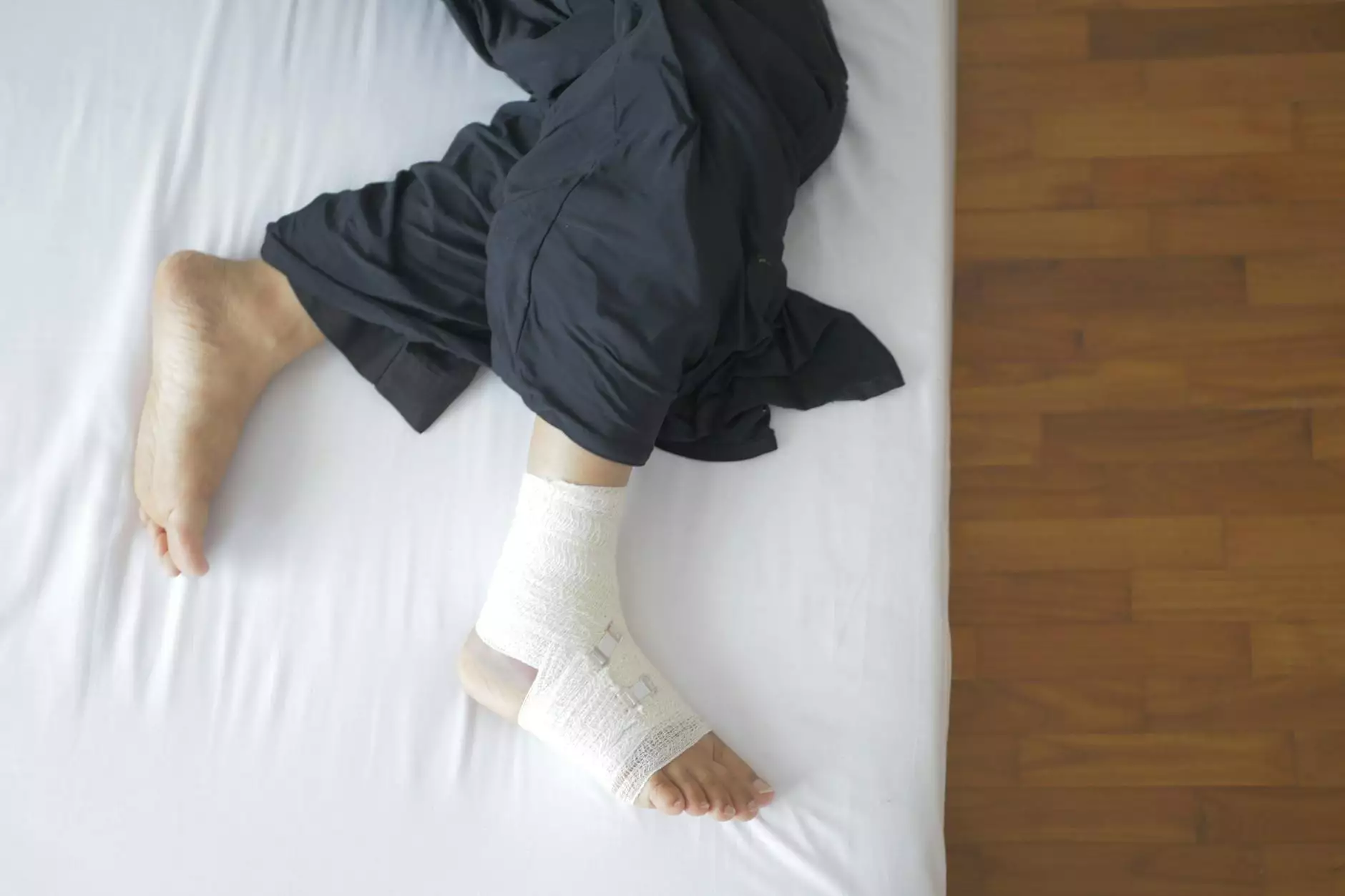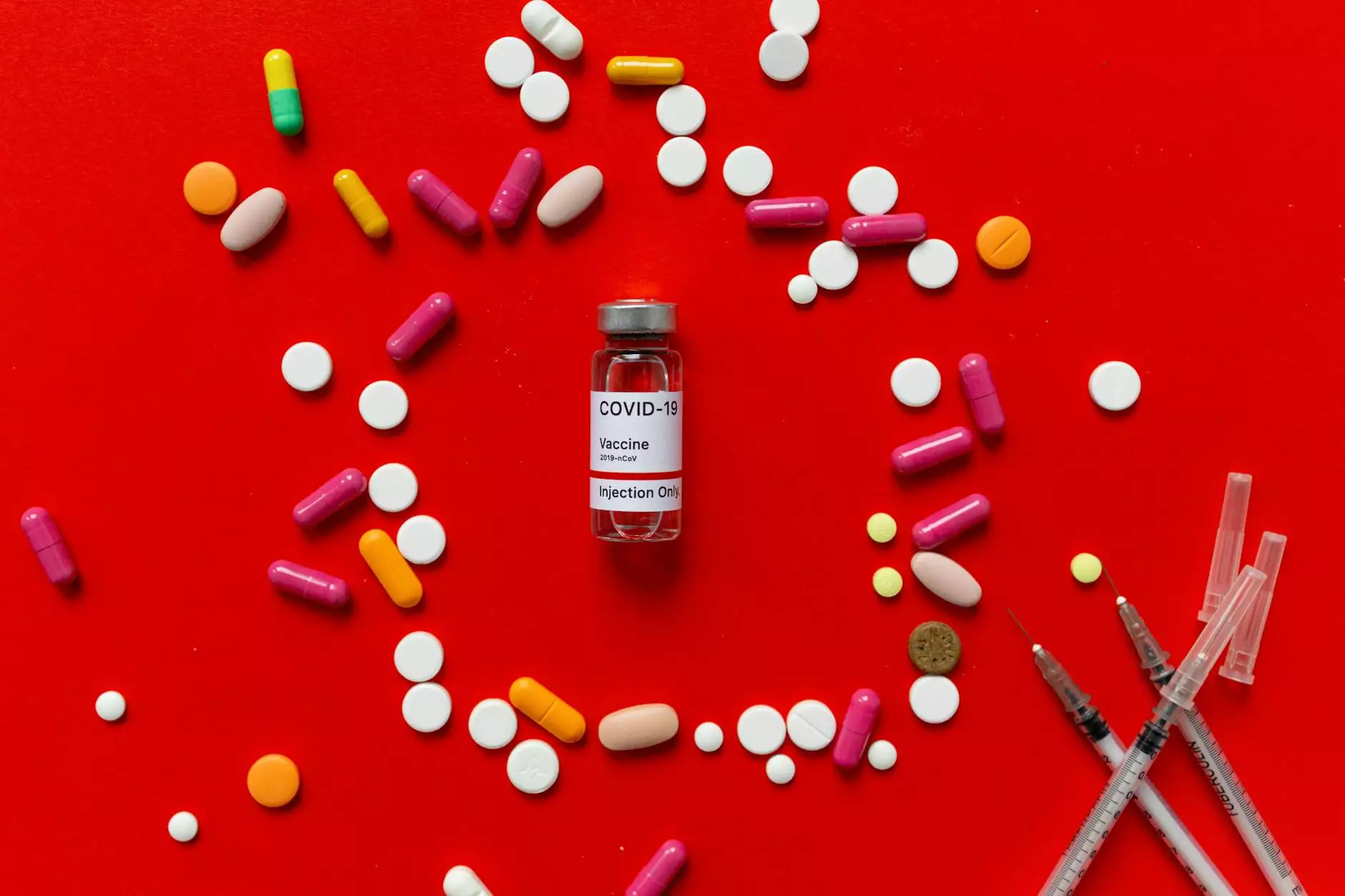Understanding the Role of a Leg Vein Doctor in Vascular Health

The human body is an intricate network, and one of its most crucial components is the vascular system. When it comes to maintaining vascular health, the expertise of a leg vein doctor is irreplaceable. These specialists not only treat various disorders associated with the veins of the legs but also play a significant role in educating patients about prevention and management. This article delves into the importance of these specialists, the conditions they treat, and the comprehensive care they provide.
What Is a Leg Vein Doctor?
A leg vein doctor, often referred to as a vascular specialist or phlebologist, focuses primarily on diagnosing and treating diseases related to the veins in the legs. This includes conditions such as:
- Varicose veins - Enlarged veins that can cause discomfort.
- Spider veins - Smaller, often harmless veins that may appear on the surface of the skin.
- Chronic venous insufficiency - A condition where the veins struggle to send blood back to the heart.
- Deep vein thrombosis (DVT) - A serious condition where blood clots form in deep veins, often necessitating immediate medical attention.
The Importance of Vascular Health
Vascular health is critical for overall well-being. Problems with the veins in your legs can lead to a range of complications, including pain, swelling, and in severe cases, amputation. Hence, having regular check-ups with a leg vein doctor can be crucial for early detection and treatment of potential issues before they escalate.
Common Conditions Treated by a Leg Vein Doctor
Here are some of the most common conditions you might consult a leg vein doctor for:
1. Varicose Veins
Varicose veins are swollen, twisted veins that usually appear blue or dark purple. They occur when valves in the veins malfunction, causing blood to pool. Symptoms often include:
- Aching pain in the legs
- Heaviness or fatigue
- Skin changes around the veins
2. Spider Veins
Unlike varicose veins, spider veins are smaller and typically less painful. They appear as web-like patterns on the legs and can be caused by various factors, including pregnancy, hormonal changes, or prolonged standing.
3. Chronic Venous Insufficiency
This condition arises when veins in the legs have difficulties returning blood back to the heart, leading to symptoms such as swelling, pain, and sometimes ulceration. A leg vein doctor can recommend lifestyle changes, compression therapy, or even surgical options to manage this condition.
4. Deep Vein Thrombosis (DVT)
DVT is a potentially life-threatening condition that requires immediate intervention. Symptoms can include swelling, pain, and redness in the affected leg. Treatment usually involves anticoagulants or other measures to prevent the clot from moving to the lungs.
Consulting a Leg Vein Doctor
If you experience any symptoms related to your veins, it’s essential to consult a leg vein doctor. Here’s what to expect during your visit:
Initial Assessment
Your doctor will take a complete medical history and perform a physical examination. They may also conduct tests such as:
- Ultrasound: To visualize the blood flow in your veins.
- Venography: An imaging test that provides detailed images of your veins.
Treatment Options
Based on the diagnosis, your leg vein doctor will recommend a treatment plan tailored to your needs. Options can range from conservative approaches to more invasive procedures, including:
- Compression therapy: The use of compression stockings to support blood flow.
- Lifestyle changes: Recommendations for diet, exercise, and habits to promote vein health.
- Minimally invasive procedures: Such as sclerotherapy or endovenous laser therapy (EVLT) for varicose veins.
- Surgery: In severe cases, traditional surgical options may be considered.
Preventative Measures for Healthy Veins
While some factors contributing to vein issues are genetic or hormonal, many preventive measures can help maintain leg vein health. Here are several effective strategies to consider:
1. Maintain a Healthy Weight
Carrying excess weight puts additional pressure on your veins, increasing the risk of developing conditions like varicose veins. Maintaining a healthy diet and exercise regime is crucial.
2. Exercise Regularly
Regular physical activity can significantly benefit your vascular health. Activities that promote blood flow and strengthen leg muscles, such as walking, cycling, and swimming, are particularly beneficial.
3. Avoid Prolonged Sitting or Standing
Whether at work or home, try to avoid sitting or standing in one position for long periods. If your job requires you to sit for extended periods, make it a habit to take short breaks for movement.
4. Elevate Your Legs
Elevating your legs while resting can help reduce swelling and improve blood circulation. Consider incorporating breaks into your routine where you can elevate your legs above your heart.
5. Wear Compression Stockings
As recommended by your leg vein doctor, wearing compression stockings can help prevent varicose veins and alleviate discomfort by supporting healthy blood circulation in the legs.
Choosing the Right Leg Vein Doctor
When selecting a leg vein doctor, it's crucial to consider several factors to ensure you receive the best possible care.
Qualifications and Experience
Look for a specialist with the proper credentials. Board certification in vascular medicine or phlebology is essential. Additionally, consider their experience in treating your specific condition.
Patient Reviews
Researching patient reviews and testimonials can provide valuable insights into a doctor's bedside manner, efficiency, and success rates. Websites like Healthgrades or Vitals can be helpful.
Office Environment
A comfortable and welcoming office environment can enhance your overall experience. The staff's professionalism and the office's cleanliness should also be considered.
Communication Style
Your doctor should encourage open communication, allowing you to discuss your symptoms and concerns freely. A good physician-patient relationship is fundamental to effective treatment.
Conclusion
The expertise of a leg vein doctor is vital for anyone experiencing symptoms or concerned about their vascular health. From evaluating conditions like varicose veins to employing advanced treatment methods, these doctors can drastically improve your quality of life. By taking proactive steps toward vein health and seeking timely consultations, individuals can maintain vibrant, healthy legs well into their later years. For those seeking specialized care, consider visiting trufflesveinspecialists.com, where a dedicated team stands ready to assist you on your journey toward optimal vascular health.









